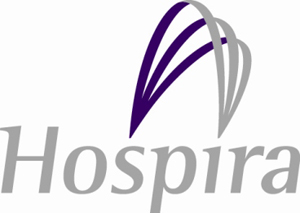 The Court of Appeal recently issued a decision concerning the issues that should be considered when granting an interim injunction. The proceedings related to Novartis' product zoledronic acid, which was used to treat osteoporosis. This product was covered by a supplementary protection certificate (an SPC), as well as two use patents. Hospira, a generics company, started revocation actions against these two patents and obtained a marketing authorisation for zoledronic acid to treat a number of conditions, including osteoporosis.
The Court of Appeal recently issued a decision concerning the issues that should be considered when granting an interim injunction. The proceedings related to Novartis' product zoledronic acid, which was used to treat osteoporosis. This product was covered by a supplementary protection certificate (an SPC), as well as two use patents. Hospira, a generics company, started revocation actions against these two patents and obtained a marketing authorisation for zoledronic acid to treat a number of conditions, including osteoporosis.
Soon after becoming aware of the marketing authorisation, Novartis wrote to Hospira requesting an undertaking that no product would be sold before the expiry of the SPC, which was duly given by Hospira. A subsequent letter requested confirmation that if the claims were found to be valid in revocation proceedings, the product would not be launched even after the lapse of the SPC. This confirmation was not given. Instead, as both patents were found to be invalid in the revocation action, Hospira indicated their intention to launch the product after the lapse of the SPC.
 Novartis appealed the revocation decision and started infringement proceedings concerning the two use patents and applied for an interim injunction to prevent Hospira's launch. In response to this application, Hospira argued that once a decision on the merits had been given, a party needs an arguable case on appeal for an injunction to be granted and that it would not be right to equate such a case with a good arguable case on the merits at the start of proceedings. It was argued that different considerations applied once trial had taken place. The court of first instance held that the case was plainly arguable and that Novartis was more at risk of suffering larger losses. However, the appeal on the revocation was not nugatory and did not have a strong prospect of success. Instead, the appeal was arguable and could inflict uncompensatable harm on either side. Further, it was said that Novartis should have started infringement proceedings earlier to allow a conclusion to be reached in good time. An injunction was therefore not granted. Novartis subsequently appealed against the decision on the granting of the injunction.
Novartis appealed the revocation decision and started infringement proceedings concerning the two use patents and applied for an interim injunction to prevent Hospira's launch. In response to this application, Hospira argued that once a decision on the merits had been given, a party needs an arguable case on appeal for an injunction to be granted and that it would not be right to equate such a case with a good arguable case on the merits at the start of proceedings. It was argued that different considerations applied once trial had taken place. The court of first instance held that the case was plainly arguable and that Novartis was more at risk of suffering larger losses. However, the appeal on the revocation was not nugatory and did not have a strong prospect of success. Instead, the appeal was arguable and could inflict uncompensatable harm on either side. Further, it was said that Novartis should have started infringement proceedings earlier to allow a conclusion to be reached in good time. An injunction was therefore not granted. Novartis subsequently appealed against the decision on the granting of the injunction.
The Court of Appeal held that there was not a clear view on the merits, as the appeal had a realistic prospect of success. The exercise of discretion should therefore not be approached on the basis that the merits are clear in favour of one side or the other. It was further held that the previous decision on the merits should not affect the balance of hardships considered when granting an injunction. This balance fell in Novartis' favour, based on the damage that would be suffered by Novartis if an injunction was not granted being more certain and greater in magnitude than the damage to Hospira if an injunction was granted.
The facts that Hospira was also selling zoledronic acid for other, less profitable diseases and that the public would be disadvantaged by an injunction were deemed to be irrelevant. It was held that an appeal in cases such as this should be expected and that generic companies should have to disclose their intentions to the innovator in time for an appeal to take place, or expedite proceedings accordingly. The decision at first instance could not be expected to determine Hospira's freedom to sell the product. The Court of Appeal therefore found in Novartis' favour and granted an interim injunction.
This decision therefore sets a precedent for interim injunctions pending appeal to be granted even if the relevant patents were found invalid at first instance.
This report comes from European Patent Attorneys at WP Thompson & Co., 55 Drury Lane, London UK. Further details and commentary can be obtained from Gill Smaggasgale, a partner at the firm.